Shell
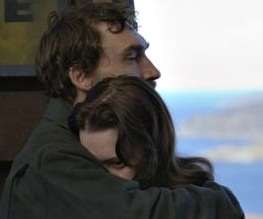
Set entirely within a remote petrol station in the beautiful but bleak Scottish Highlands, Shell works hard to accustomize its audience to these surroundings, without really displaying its labour. Though seemingly a silent haven away from the world, we soon become very aware of every little sound disturbing the peace. The wind pressurises the buildings producing jarring clinks, doors open and close, cars occasionally pass by the station, rarely stopping to fill up the tank at this service point on a road leading to and from places we are similarly unaware of.
The world that is presented to us is that of Shell (Pirrie), seventeen, and her father Peter (Mawle) who have both made their lives in this place, alone apart from the occasional visit from a customer, or the regular tap at the door from the victims of the road, seeking aid and shelter. The title of the film would suggest a focus on Shell that is certainly there, but we are quickly soothed into the rhythm of the relationship between father and daughter, forced to see each as part of the whole. It is this mood music of domestic accommodation which surrounds the film in a very tender tension, pulling our attention back to the human story that is unfolding here, in a place very much like the edge of the earth.
From the beginning there is a massive emptiness about the film. Shell is woken up on a cold morning in autumn by the sound of a car pulling off the road and into the entrance of her home. The visitor is a familiar one, the withered Irishman Hugh, bound on the road to visit his estranged family. A regular. We gather all of this in the small spaces between the weighty silence, appreciating and fearing this human complication. Shell speaks simply, yet her eyes are ambiguous. Are we being asked to read the story of Shell in her face? We seek to populate the vast wildness of every action, look, gesture; every contrast between darkness and light, heat and cold, male and female. The film gently leads us along the path of the narrative, skilfully depicting mundanity as the essential stuff of life, the Hicks boson God-particle that holds our universe together. These stretches of intense calm, when Pete is repairing a copper pipe by sawing it through, or when Shell is preparing some instant coffee that floats its heat into the icy kitchen, were highlights of the film for me. Perhaps because the most efficient way to know someone is to observe their behaviour in silence.
There is more to this film, of course. Intruders into the atmosphere come and shake the pieces of our intricately constructed board. There are four sets of them, all of whom make two visits, apart from the last one. Apart from Hugh, who returns, there is Adam, a young man about Shell’s age. Do we read the look of love in their eyes when they meet? And there is Robert and Claire (Paul Thomas Hickey and Kate Dickie), a couple stranded on the road having smashed their car into a wandering deer in the darkness. The final visitor comes at the end, and his only purpose is to provide the means of escape. The interactions between father and daughter and these various outsiders set the film along a new pace which seeps into the slow tempo like a virus, one whose symptoms expose deeper troubles lying beneath the skin of Pete and Shell.
In a film such as this, everything depends on the talent of the cast. Joseph Mawle is a revelation in a role which expands subtly to utterly overwhelm the film, and one which can only solidify the upward trajectory his post-Game of Thrones career is taking at the minute. Pete, in other hands, could easily have become a menacing figure, out of keeping with the slow heartbeat of this film. Mawle never loses the audiences compassion. Newcomer Pirre (who will be on our screens next week as the lead in Charlie Brooker’s Black Mirror) carries the film’s burden of silence with ease and grace.
While little more should be said here about the execution of the plot, I can say that the ending is stunning, as inevitable as it is beautiful, and will likely leave the cinema audience as it did mine, riveted to their seats and unwilling to emerge back into the noise outside the shell.

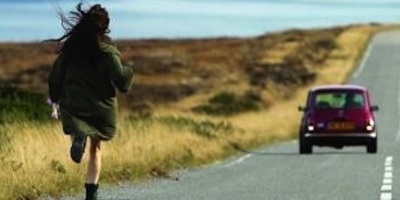
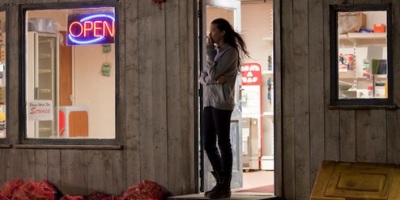

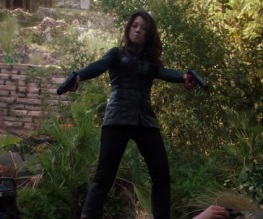
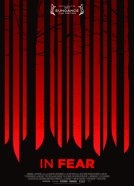
Recent Comments